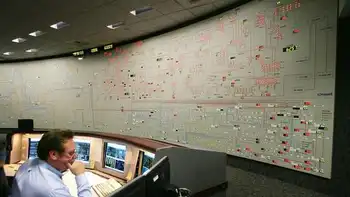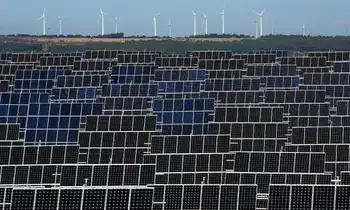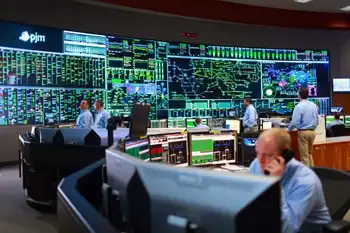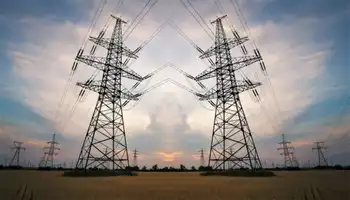Turn off and tune out on Earth Day
TORONTO, ONTARO - Frustrated by Canada's stalling as the climate change negotiations head into their final hours in Bali?
Then you can join a movement to let political leaders know you are worried about global warming and willing to do your part.
Toronto is among a dozen other cities worldwide that will participate in Earth Hour by turning off lights and appliances for an hour on March 29, from 8 to 9 p.m., to symbolize the people's commitment to tackling global warming. Sponsors of the Toronto event include WWF-Canada, the City of Toronto and the Toronto Star.
"The public has become increasingly alarmed about climate change. They're seeing it in their daily lives, faster and worse than scientists predicted even a few years ago, and are increasingly impatient to see something done about it," Jim Leape, director general of World Wildlife Fund International, said from Bali.
"People are ready to take action in their own lives and expecting their governments to take action."
Imagine the CN Tower, the Rogers Centre and the glow of Yonge St. all blackened temporarily, allowing city dwellers a rare glimpse of the stars.
"Every person, every business and every government has a shared duty to fight climate change," said Toronto Mayor David Miller, urging Torontonians to take part. "Where national governments fail to lead, cities can and must lead."
"Earth Hour and the Toronto Star share a common purpose, to raise awareness about global climate change," said Star publisher Jagoda Pike. "This event is an opportunity to show how individuals acting together as a community can have a huge impact.
"Ultimately, we hope it gets people thinking and talking here in Toronto and in cities around the world about real solutions to what is arguably the most important issue of our time."
Toronto committed to cutting greenhouse gas emissions by 30 per cent by 2020, and by 80 per cent by 2050. Greenhouse gases trap the Earth's heat and, according to the world's leading climate scientists, are altering the world's temperature and weather patterns.
Other cities committed to Earth Hour include Chicago, Auckland, Tel Aviv, Copenhagen, Manila, Suva in Fiji, and Sydney, Australia, where the event started this year.
On March 31st, an estimated 2.2 million residents – and 2,000 businesses – pulled off the grid for an hour by dimming their lights, unplugging their computers or switching off their televisions. For that hour, the city's electricity use dropped by 10 per cent. The Opera House sails went black, the Harbour Bridge darkened, the fluorescent glare of the city's skyline dimmed and restaurants served meals by candlelight. The town hall temporarily went to sleep.
By all accounts, it was a huge success – and a show by the Aussies they didn't approve of then-Prime Minister John Howard's staunch rejection of the Kyoto Accord, the United Nation's agreement to cut greenhouse gases. (They've since elected a new environmentalist Prime Minister Kevin Rudd.)
"The public is leading on this issue. It's alarmed and wants to see the right action," Leape said. "It is a political statement that we are going to join together and make a difference."
As the 13th annual United Nations conference on climate change wraps up today, Leape and other environmental activists still held on to faint hope delegates could bridge the gap between two sides: Countries, including the European Union, that are committed to deep emissions cuts, and others, including Canada, that won't accept numbers of any sort.
Canada's Environment Minister John Baird said Canada won't agree to emission cuts without the United States – as it would hurt our economy without improving the atmosphere.
"Canada has been consistently obstructionist for the whole two weeks," said Leape. "So, of course, has the United States. The question is whether the rest can overcome the resistance of those two – and Japan – and do what needs to be done."
One hour of darkness won't stop the globe from warming, but the event is designed to get people to stop and think about what is taken for granted – electricity – especially when it's generated by carbon-belching coal plants, one of the world's leading causes of climate change.
Related News

Cal ISO Warns Rolling Blackouts Possible, Calls For Conservation As Power Grid Strains
LOS ANGELES - Residents and businesses across Southern California were urged to conserve power Tuesday afternoon as the manager of the state’s power grid warned rolling blackouts could be imminent for some power customers.
The California Independent System Operator (Cal ISO), which manages the state power grid, declared a Stage 2 emergency as of 2:30 p.m., indicating severe strain on the electrical system.
ADVERTISING
Rolling blackouts for some customers could occur in a Stage 3 emergency.
Cal ISO issued a statewide Flex Alert in effect from 3 to 10 p.m. Tuesday and Wednesday, with conservation considered especially critical during those…




